Negotiation
Negotiation
Negotiation is a discussion between two or more parties over an issue, where all parties want to reach a beneficial outcome or agreeable end goal. Negotiation may seem like a difficult business process, but it is an interaction that is very present in our everyday lives. You might be trying to get a better price on a car, or you might be trying to get someone else to take out the trash. Either way, negotiation is an important skill to learn for building relationships and getting what you want. To become a successful negotiator, it is crucial to find out what strategies and negotiation styles work best for you. It is also essential to enter a discussion prepared, knowing what your position and and what the other party wants including the strengths and weaknesses of their position.
The objective behind a successful negotiation is for both parties to believe that they have attained a win-win situation.
This resource guide lists some resources on negotiation which are available in NLB and on the Internet. Interested readers are recommended to search the NLB catalogue for more resources. Academic journal and research articles can be found from NLB’s subscribed databases.
| Search Terms | Call Numbers |
|---|---|
| Negotiation | 658.4052 |
| Influence (psychology) | 153 |
| Communication in business | 302.3 |
| Success in business | 650.1 |
Resources
Books
| Title | Description |
|---|---|
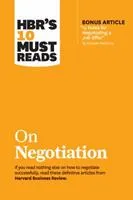 |
HBR’s 10 must reads on negotiation This collection of 10 Harvard Business Review articles gives a concise overview on the major aspects of negotiation. Topics range from uncovering the other side’s motives, conquering faulty assumptions to make the right deals, to gaining your adversaries’ trust in high-stakes talks. All rights reserved, Boston, Massachusetts: Harvard Business Review Press, 2019 Harvard Business Review, HBR’s 10 must reads on negotiation. Boston, Massachusetts: Harvard Business Review Press, 2019 (Call no. 658.4052 HBR -[BIZ]) |
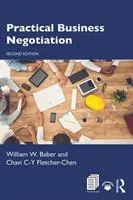 |
Practical business negotiation A step-by-step guide in approaching negotiation processes. Chapters include getting started, the sequence of actions, expectations when negotiating, applicable language, interacting with different cultures, and completing a negotiation, complete with concrete real-life examples. All rights reserved, Abingdon, Oxon; New York, NY: Routledge, 2020 Baber, William W., and Chavi C-Y Fletcher-Chen, Practical business negotiation . Abingdon, Oxon; New York, NY: Routledge, 2020 (Call no. 658.4052 BAB -[BIZ]) |
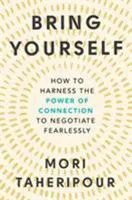 |
Bring yourself: How to harness the power of connection to negotiate fearlessly Conventional wisdom surrounding negotiation often paints the negotiator as aggressive and unemotional. Taheripour challenges that notion by arguing that the best negotiators are empathetic, curious, and present. All rights reserved, New York: Avery, 2020 Mori Taheripour, Bring yourself: How to harness the power of connection to negotiate fearlessly. New York: Avery, 2020 (Call no. 302.3 TAH) |
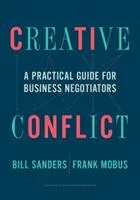 |
Creative conflict: A practical guide for business negotiators In today’s volatile, disruptive, and ultracompetitive business environment, strategic problem-solving is a highly sought-after skill. Sanders and Mobus argue that conflict should be embraced in negotiation and offer a framework based on three basic contexts: bargaining, deal making, and relationship building. All rights reserved, Boston, Massachusetts: Harvard Business Review Press, 2021 Bill Sanders, and Frank Mobus, Creative conflict: A practical guide for business negotiators. Boston, Massachusetts: Harvard Business Review Press, 2021 (Call no. 658.4052 SAN -[BIZ]) |
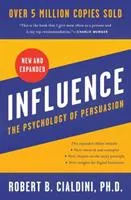 |
Influence, new and expanded: The psychology of persuasion Cialdini explains the psychology behind why people say yes and how these insights can be ethically applied to business and everyday settings. Backed by research on influence and persuasion, the author proposes several key principles of persuasion to move others in your direction, a skill that is crucial in the face of negotiation. All rights reserved, New York: Harper Business, 2021 Robert B. Cialdini, Influence, new and expanded: The psychology of persuasion. New York: Harper Business, 2021 (Call no. 153.852 CIA) |
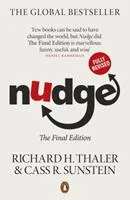 |
Nudge: The final edition Negotiation is often centred on making sound decisions, but studies show that humans usually make poor choices. Drawing on behavioural science research, Thaler and Sunstein explain how we make choices and how we can make better ones. The authors also reveal biases we tend to be susceptible to and discuss how these can be overcome to make the best decisions for ourselves and others. All rights reserved, London, Allen Lane, 2021 Richard H. Thaler, and Cass R. Sunstein, Nudge: The final edition. London, Allen Lane, 2021 (Call no. 330.019 THA -[BIZ]) |
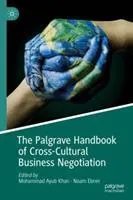 |
Palgrave handbook of cross-cultural business negotiation This volume provides an overview on negotiation in a global context, detailing contemporary theories regarding international engagement, cultural differences, and cross-cultural interaction. Includes country-specific chapters analysing different negotiation cultures globally and concludes by identifying new developments in this field. All rights reserved, Cham, Switzerland: Palgrave Macmillan, 2019 Mohammad Ayub Khan, and Noam Ebner, eds., Palgrave handbook of cross-cultural business negotiation. Cham, Switzerland: Palgrave Macmillan, 2019 (Call no. 658.4052 PAL) |
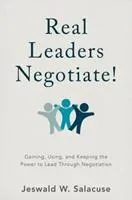 |
Real leaders negotiate!: Gaining, using, and keeping the power to lead through negotiation While negotiation may traditionally have been viewed as a sign of weakness at odds with the notion of leadership which is seen as commanding and decisive, Salacuse proposes that leaders can increase their effectiveness by using negotiation in three phases of the leadership lifecycle: leadership attainment, leadership action, and leadership preservation. Discover how to use negotiation to gain and exercise leadership, and to also overcome threats to one’s leadership position. All rights reserved, New York, NY: Palgrave Macmillan, 2017 Jeswald W. Salacuse, Real leaders negotiate!: Gaining, using, and keeping the power to lead through negotiation. New York, NY: Palgrave Macmillan, 2017 (Call no. 302.3 SAL) |
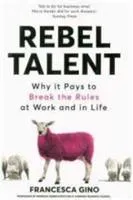 |
Rebel talent: Why it pays to break the rules at work and in life Negotiation encompasses many skills, and thinking out of the box is one of them. Gino provides insights on how successful figures have broken rules and have changed the world for the better with their unconventional outlook and actions. Learn how to become more innovative and adaptive in turbulent environments for greater success and fulfilment. All rights reserved, London: Pan Books, 2019 Francesca Gino, Rebel talent: Why it pays to break the rules at work and in life. London: Pan Books, 2019 (Call no. 650.1 GIN -[BIZ]) |
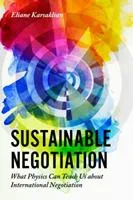 |
Sustainable negotiation: What physics can teach us about international negotiation Just as we strive to take a sustainable approach towards the natural environment, Karsaklian argues that the same approach should be taken with people to build a harmonious business climate. By borrowing concepts from physics, Karsaklian suggests that negotiators need to know what is invisible to explain what is visible with a focus on sustainable business practices. All rights reserved, Bingley, UK: Emerald Publishing, 2017 Elaine Karsaklian, Sustainable negotiation: What physics can teach us about international negotiation. Bingley, UK: Emerald Publishing, 2017 (Call no. 658.4052 KAR -[BIZ]) |
Ebooks
(myLibraryID is required to access the ebooks from NLB Overdrive)
| Title | Description |
|---|---|
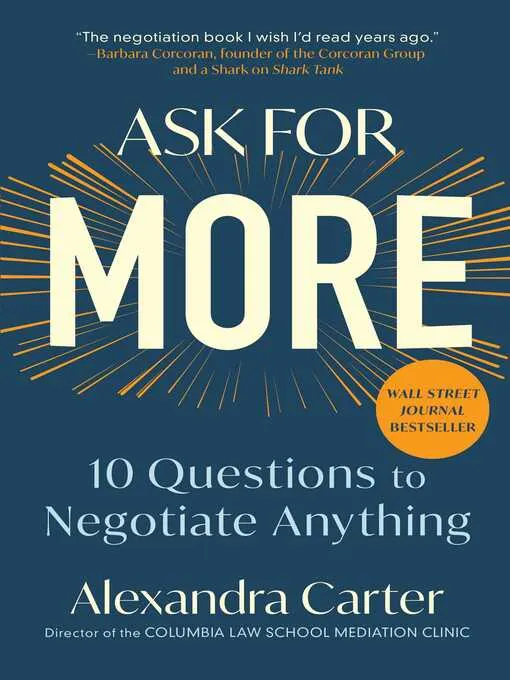 |
Ask for more: 10 Questions to negotiate anything This book offers an accessible approach to negotiation by suggesting the right questions to ask. Carter includes a 10-question framework for successful, win-win negotiations, proposing that by asking better questions, you get better answers, and hence better results from any negotiation. All rights reserved, New York: Simon & Schuster, 2020 Alexandra Carter, Ask for more: 10 Questions to negotiate anything. New York: Simon & Schuster, 2020) |
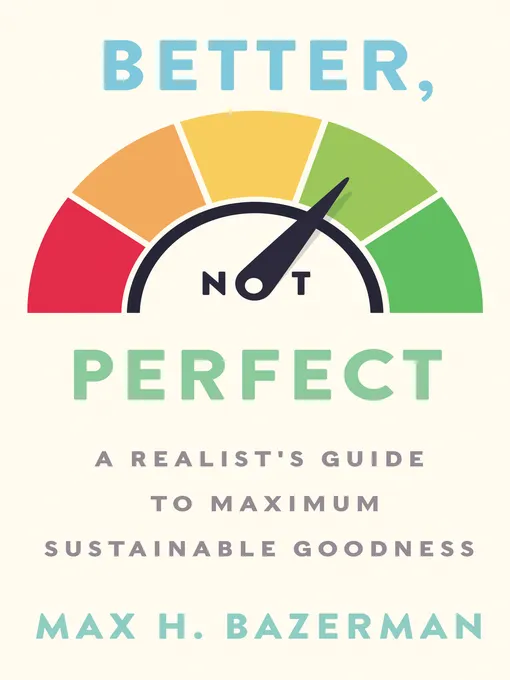 |
Better, not perfect: A realist’s guide to maximum sustainable goodness Negotiation and decision-making expert Max Bazerman argues that we do not have to seek perfection to make a real difference. Instead, Bazerman shares a framework to maximise what we want and to minimise pain to attain the most “sustainable goodness”. The author also identifies four training grounds to practice your new decision-making and negotiation skills for outsized impact. All rights reserved, New York: Harper Business, 2020 Max H. Bazerman, Better, not perfect: A realist’s guide to maximum sustainable goodness. New York: Harper Business, 2020) |
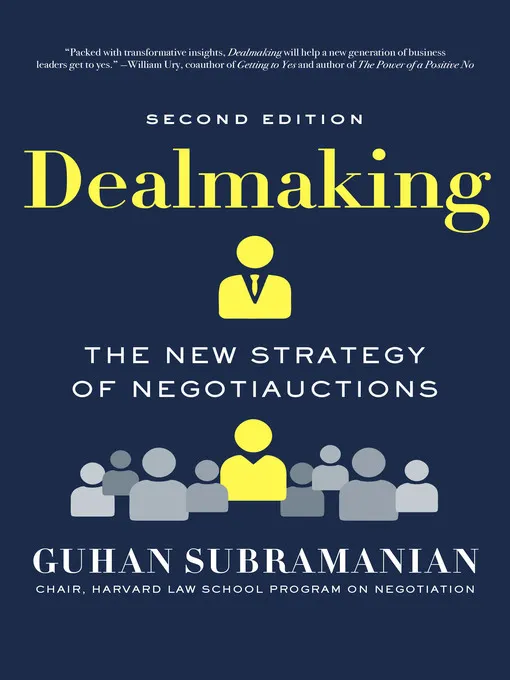 |
Dealmaking: The new strategy of negotiauctions Deal making scholar and Harvard Business School professor Guhan Subramanian provides advice on negotiation based on his experiences in teaching negotiation theory and auction theory. By bringing both fields together in a new and original way, the author offers various negotiation scenarios and clearly identifies the specific moves that ensure success. All rights reserved, New York: W. W. Norton & Company, 2020 Guhan Subramanian, Dealmaking: The new strategy of negotiauctions . New York: W. W. Norton & Company, 2020) |
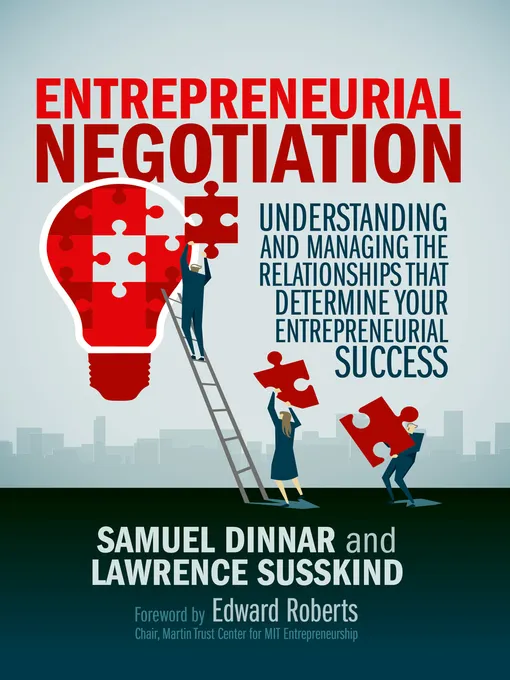 |
Entrepreneurial negotiation: Understanding and managing the relationships that determine your entrepreneurial success Entrepreneurship is often a series of interactions between founders, partners, potential partners and more. Through these interactions, the authors explore how to handle emotions, manage uncertainty, cope with technical complexity, and build long-term relationships to become a successful negotiator. All rights reserved, Dordrecht: Palgrave Macmillan, 2018 Samuel Dinnar, and Lawrence Susskind, Entrepreneurial negotiation: Understanding and managing the relationships that determine your entrepreneurial success. Dordrecht: Palgrave Macmillan, 2018) |
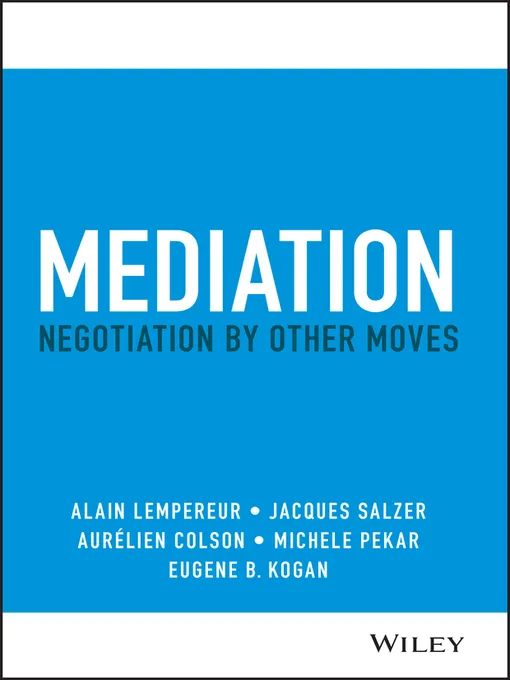 |
Mediation: Negotiation by other moves What happens when both parties are unable to come to an agreement? Sometimes negotiations may fail, and hence mediation allows for amicable resolutions. Lempereur provides a mediation framework for resolving conflict and addresses concepts such as resetting the negotiation, rebuilding relationships, and developing a flexible mindset. All rights reserved, Hoboken: Wiley, 2021 Alain Lempereur, Jacques Salzer, Aurelien Colson, Michele Pekar, and Eugene B. Kogan., Mediation: Negotiation by other moves. Hoboken: Wiley, 2021) |
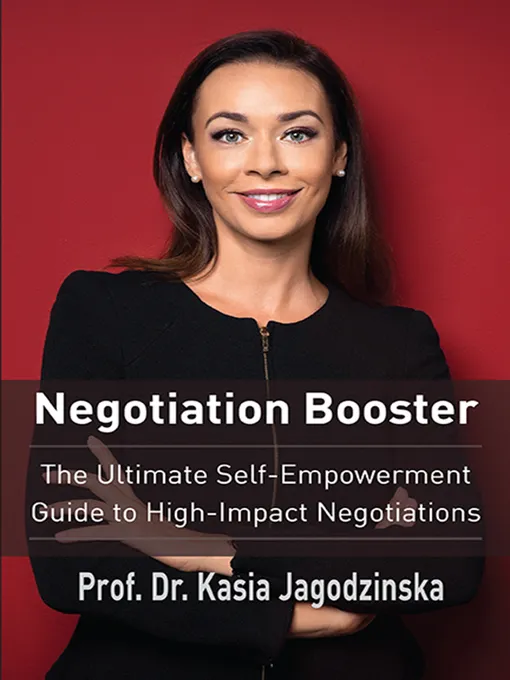 |
Negotiation booster: The ultimate self-empowerment guide to high impact negotiations This book focuses on self-empowerment as an important factor in business negotiations. Author Kasia Jagodzinska argues that a negotiation cannot be won if one enters with fear or self-doubt. Instead, the author proposes that strategy must be combined with self-empowerment for one to thrive in all aspects of negotiation. All rights reserved, LaVergne: Business Expert Press, 2020 Kasia Jagodzinska, Negotiation booster: The ultimate self-empowerment guide to high impact negotiations. LaVergne: Business Expert Press, 2020) |
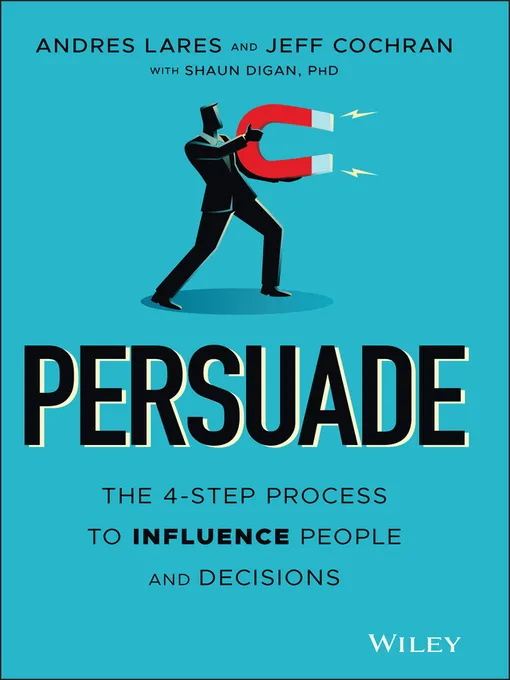 |
Persuade: The 4-step process to influence people and decisions At the heart of negotiation lies persuasion, the ability to influence and convince. Through the authors’ research and scientific studies on human decision-making processes, the book explores how interactions succeed or fail and offers a four-step method to improve persuasion skills in the context of negotiation. All rights reserved, Hoboken: Wiley, 2021 Andres Lares, Jeff Cochran, and Shaun Digan., Persuade: The 4-step process to influence people and decisions . Hoboken: Wiley, 2021) |
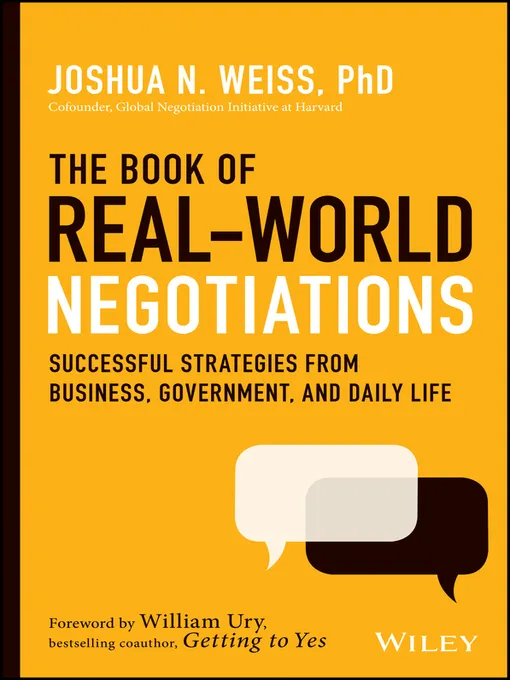 |
The book of real-world negotiations: Successful strategies from business, government, and daily life Drawing on real world negotiation examples and cases, the author believes that the true power of negotiation can only be grasped through an immersion in actual scenarios. In this book, real world cases are presented through different categories — domestic business, international business, governmental, and daily life — with a focus on win-win outcomes, underlying interests, creative options, and best alternatives. All rights reserved, New York: Wiley, 2020 Joshua N. Weiss, The book of real-world negotiations: Successful strategies from business, government, and daily life. New York: Wiley, 2020) |
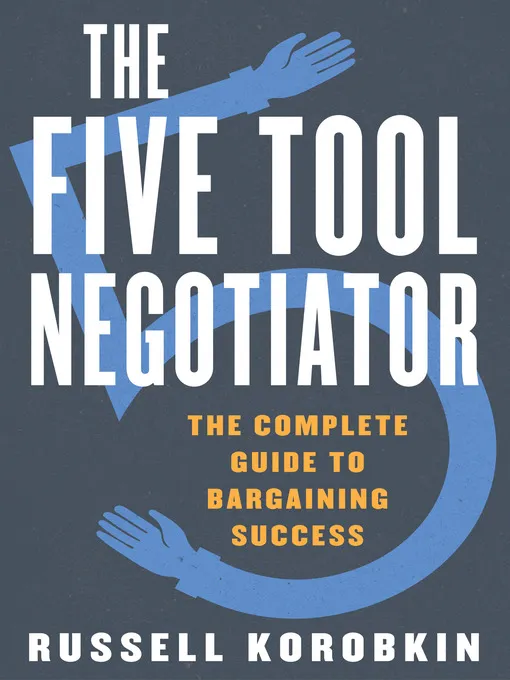 |
The five tool negotiator: The complete guide to bargaining success Law professor Russell Korobkin draws concepts from the fields of psychology, economics, and game theory to provide a roadmap in negotiation. Filled with examples and step-by-step actionables, Korobkin summarises key bargaining strategies into five simple yet powerful tools for negotiating with ease. All rights reserved, New York: Liveright, 2021 Russell Korobkin, The five tool negotiator: The complete guide to bargaining success. New York: Liveright, 2021) |
Websites
-
12 Important negotiation skills: Definition and examples
Indeed. (2021, June 11).“12 Important Negotiation Skills: Definition and Examples.” Accessed August 19, 2021.
Provides an overview of the top negotiation skills to have and includes tips on how to start preparing for negotiations in the workplace. Negotiation skills include communication, patience, adaptability, and more.
-
Bad negotiation: 9 Mistakes to avoid at the bargaining table
Gavin, Matt. (2018, November 20). “Bad Negotiation: 9 Mistakes to Avoid at the Bargaining Table.” Accessed August 19, 2021.
Identifies common mistakes that often lead to failed negotiations, such as neglecting the other side’s perspective, using aggressive language, and losing sight of your values. Includes tips and explanations regarding such mistakes to avoid.
-
Distributive Negotiation – Explained
Gordon, Jason. (2021, July 11). “Distributive Negotiation – Explained.” Accessed August 25, 2021.
Briefly introduces the concept of distributive negotiation, where all negotiating parties have the same interests or objectives and are hence in conflict with each other. This article explores the competitive nature of distributive negotiation and its effectiveness in negotiation processes.
-
Emotion and the art of negotiation
Brooks, Alison Wood. (2020, September 10). “Emotion and the Art of Negotiation.” Accessed August 19, 2021.
Harvard Business School professor Alison Wood Brooks addresses the role of emotion in negotiation processes. The author shares some key findings from recent research in this area and shares critical emotions to look out for when negotiating.
-
Negotiation types
Negotiation Experts. (2020, December 14). “Negotiation Types.” Accessed August 19, 2021.
There are two main schools of thought when it comes to negotiation: integrative and distributive. Take a closer look at different negotiation styles and theories, complete with guiding steps on how to achieve them.
-
Win-win negotiation: Finding solutions that work for everyone
Mind Tools. “Win-Win Negotiation: Finding Solutions That Work for Everyone.” Accessed August 19, 2021.
This article introduces the concept of win-win negotiation, where all negotiating parties reach a mutually acceptable outcome. Learn how to put win-win negotiation into practice with the step-by-step guide, which includes separating people from the problem, focusing on interests, and knowing the best alternative to a negotiated agreement.
Videos & Podcasts
-
The art of negotiation: Six must-have strategies | London Business School
Ku, Gillian. “The art of negotiation: Six must-have strategies | London Business School.” London Business School. February 8, 2019. Lecture series, 56:54. https://www.youtube.com/watch?v=uKbcmlKb81c
Gillian Ku, a professor of organisational behaviour at London Business School, shares six interpersonal principles regarding how we interact with people, and how that affects one’s ability to influence and persuade others.
-
The negotiations between Disney and Lucasfilm - A negotiation case study
365 Careers. “The negotiations between Disney and Lucasfilm - A negotiation case study.” July 3, 2017. Educational video, 13:57. https://www.youtube.com/watch?v=qgyQWOM2mV4
This case study follows the negotiation processes between Disney CEO Robert Iger and former Lucasfilm head George Lucas, which led to Disney’s acquisition of Lucasfilm in 2012. Learn about the negotiation tactics used by both parties through a detailed look at their thought processes and conversations.
-
The Negotiate Anything Podcast
Kwame Christian. “The Negotiate Anything Podcast.” 2024. https://americannegotiationinstitute.com/the-negotiate-anything-podcast/
This podcast offers fresh insights on negotiation tactics, mistakes, and fears in business through discussions with professors, entrepreneurs, CEOs, and finance experts.
-
Greg Williams The Master Negotiator and Body Language Expert Podcast
C-Suite Radio. “Greg Williams The Master Negotiator and Body Language Expert Podcast.” 2021. https://www.themasternegotiator.com/news-and-media/
This podcast highlights how you can use body language to your advantage to enhance your negotiation skills. Greg Williams shares his expertise on body language cues to show how you can read people, emit unspoken signals, and manage emotions. Each podcast episode is released on Tuesdays and Fridays.
-
Negotiations Ninja Podcast
Negotiations Ninja. “Negotiations Ninja Podcast.” 2021. http://www.negotiations.ninja/podcast/
Explore negotiation strategy and tactics through stories of negotiation failures and success with negotiation experts, business people, and entrepreneurs from all walks of life. Every podcast episode is delivered with detail and great insight, offering a deep dive on many aspects of negotiation. Each podcast episode is released on Mondays and Thursdays.
Journal articles
(MyLibraryID is required to access the journal articles from NLB’s eResources website)
-
Bounded ethicality and ethical fading in negotiations: Understanding unintended unethical behavior
Rees, McKenzie R., Ann E. Tenbrunsel, and Max H. Bazerman, “Bounded ethicality and ethical fading in negotiations: Understanding unintended unethical behavior,” Academy of Management Perspectives 33, no. 1 (February 2019): 26-42. Retrieved 2021, August 19, from EBSCOHost Business Source Complete via NLB’s eResources website.
This article explores ethical decision making in the context of negotiation, arguing that not all unethical behaviour in negotiating is intentional. The authors use research to identify negotiation cues that are linked to unethical behaviour and explain why individuals sometimes do not see the ethical implications of their actions.
-
Compromise in negotiation
May, Simon Cabulea, “Compromise in negotiation,” Nomos 59, (2018): 150-166. Retrieved 2021, August 31, from JSTOR Journals via NLB’s eResources website.
Compromise is bound to come up during any kind of negotiation. May explores the role of compromise in dispute resolution and challenges its inherent meaning and the biases that surround it.
-
In search of master negotiators: A negotiation competency model
Smolinski, Remigiusz, and Yun Xiong, “In search of master negotiators: A negotiation competency model,” Negotiation Journal 36, no. 3 (July 2020): 365-388. Retrieved 2021, September 2, from ProQuest Central via NLB’s eResources website.
As the field of negotiation becomes more fully recognised as an academic discipline, many believe that negotiation is a skill that can be taught and evaluated. In this article, the authors propose a negotiation competency model for evaluating negotiation performance, specifically looking at proficiency levels and behavioural influences. Having this model in mind can help negotiators become more effective and well-prepared in their negotiations.
-
The power of lost alternatives in negotiations
Brady, Garrett L., M. Ena Inesi, and Thomas Mussweller, “The power of lost alternatives in negotiations,” Organizational Behavior & Human Decision Processes 162, (January 2021): 59-80. Retrieved 2021, August 31, from EBSCOHost Business Source Complete via NLB’s eResources website.
Having attractive alternatives is often viewed as essential for negotiation success. However, such alternatives are never guaranteed and are sometimes lost. This study demonstrates that losing an attractive alternative is still advantageous, compared to not having an alternative at all, and shows how negotiators can use that to their benefit.
-
The role of regulatory focus and emotion recognition bias in cross-cultural negotiation
Han, Donghee, Hyewon Park, and Seung-Yoon Rhee, “The role of regulatory focus and emotion recognition bias in cross-cultural negotiation,” Sustainability 13, no. 5 (March 2021): 2659. Retrieved 2021, September 2, from ProQuest Central via NLB’s eResources website.
This article explores the role of emotion and motivation in cross-cultural negotiations, proposing that cultural differences will lead to cultural biases in emotion recognition, which in turn will affect negotiation behaviours. Through a study on negotiation processes via various cross-cultural contexts, the authors highlight different inclinations and assumptions that could arise during international negotiations.
Author
This resource guide was prepared in September 2021 by Winnie Tan, Associate Librarian at the National Library, Singapore. It is not intended to be an exhaustive or complete history on the subject. Please contact the Library for further reading materials on the topic.
All Rights Reserved. National Library Board Singapore 2021.

